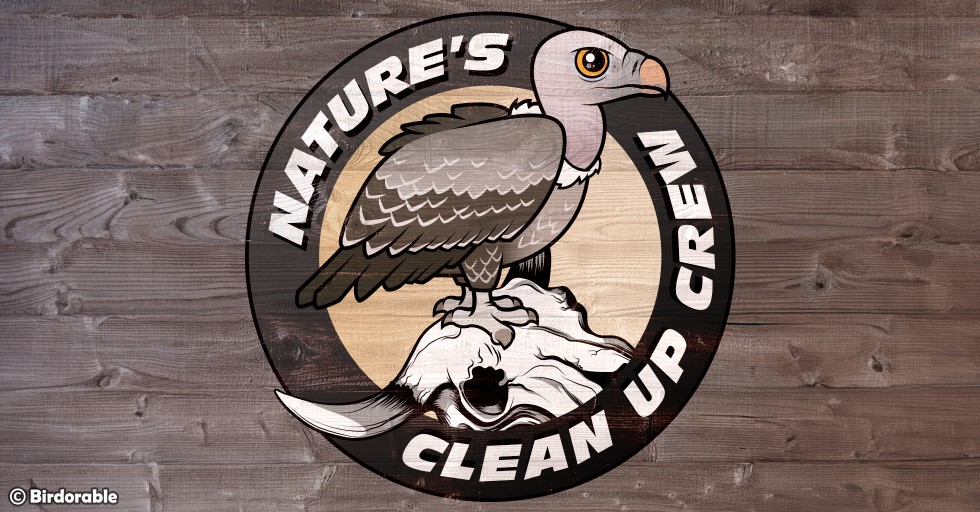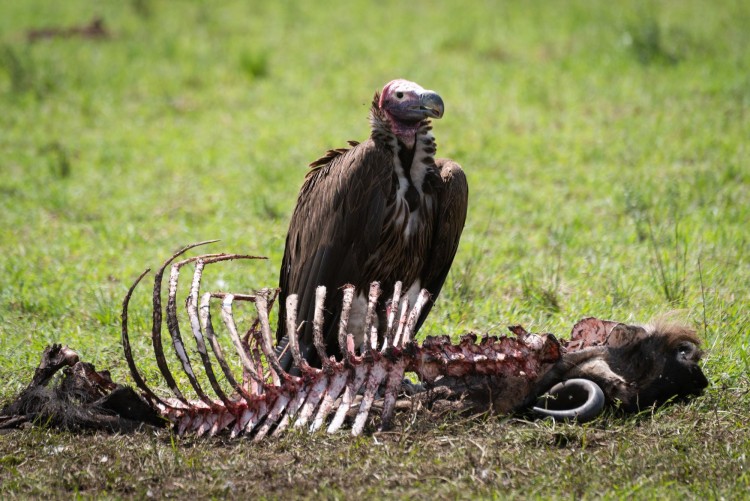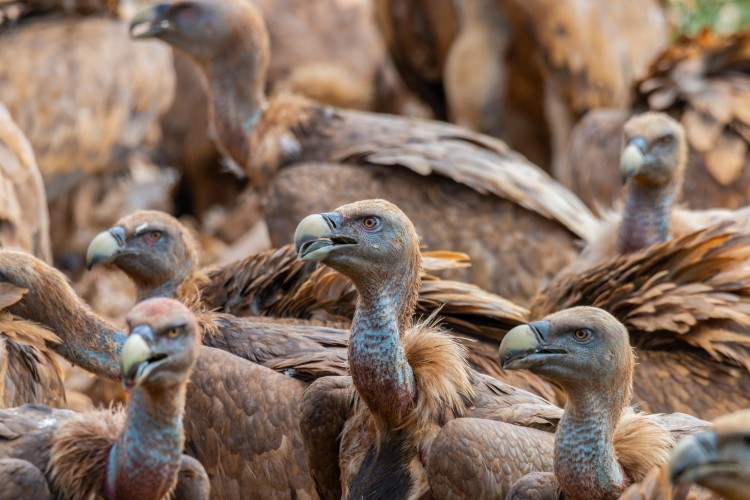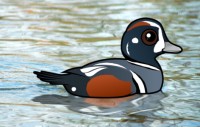Vulture Week 2024
Vulture Myth Busted: These Vital Scavengers Are Not 'Dirty'

Nature's Clean Up Crew featuring the Birdorable Rueppell's Vulture
Vultures have a reputation for being dirty, filthy, and unappealing. This stereotype likely comes from their unique diet and their habit of scavenging on carcasses. But the truth is that vultures are some of the cleanest birds around, and they play a vital role in maintaining the health of our ecosystems. Let’s bust the myth that vultures are dirty birds and explore the many ways they contribute to a cleaner, healthier environment.
First, let’s talk about why vultures have such a bad rap. Vultures feed primarily on dead animals. The idea of eating rotting meat doesn’t exactly scream cleanliness. But vultures are equipped with some fascinating adaptations that allow them to safely consume carrion without getting sick. Their stomachs produce incredibly strong acids, which are capable of neutralizing dangerous bacteria and viruses found in decaying meat, including pathogens like anthrax and botulism that would be lethal to most other animals.
Not only do vultures handle these dangerous pathogens with ease, but they also help prevent the spread of disease. By consuming dead animals, vultures remove potential breeding grounds for bacteria and viruses. Without vultures, carcasses would linger in the environment, attracting other scavengers that might not be as efficient at cleaning up. This could lead to outbreaks of disease that could affect both wildlife and humans. So, rather than being dirty, vultures are nature’s cleanup crew, playing a crucial role in keeping ecosystems healthy.

Lappet-faced Vulture
Another reason vultures get a bad reputation is their appearance. Most species have bald heads and necks, which can give them a somewhat, subjectively, unattractive look. But there’s a good reason for their lack of feathers in these areas. When vultures feed, they often have to stick their heads deep into carcasses to reach the meat. If they had feathers on their heads, these would quickly become matted with blood and other fluids, leading to a messy, unhygienic situation. Instead, their bald skin is easier to keep clean. After feeding, vultures will often sunbathe, which not only helps them dry off but also kills off any bacteria that might be lingering on their skin.
Vultures are also known for their unusual behavior of defecating on their legs. While this might seem gross at first glance, it’s actually another clever adaptation. This behavior, known as urohydrosis, helps vultures cool down on hot days since the evaporating liquid carries away heat. Additionally, vulture droppings are highly acidic, which means they help kill off any bacteria that might be present on the birds' legs after they’ve been walking around on carcasses.
Despite their crucial role in the ecosystem, vultures are often misunderstood and even persecuted. In some cultures, they’re associated with death and bad omens, which has led to negative perceptions. But in reality, vultures are vital to our environment. Their presence reduces the spread of diseases, and they help to keep natural areas free of decaying matter that could otherwise harm other wildlife.

Eurasian Griffons
In some parts of the world, vulture populations are declining due to poisoning, habitat loss, and other human activities. This is not only a tragedy for the birds themselves but also for the ecosystems that depend on them. As vulture numbers dwindle, the rate of disease transmission from decaying carcasses could increase, affecting both animals and people.
For further reading, check out this fascinating article on the correlation between the decline of vultures in India with an increase in human deaths: When Vultures Nearly Disappeared in India, Half a Million People Died, Too, Study Finds.
“Vultures provide an incredible disposal service for free. A group of vultures takes about 45 minutes to turn a cow carcass into bone." [...] The death of the vultures was “the largest sanitation shock you could imagine, where you have 50 million (cow) carcasses every year not being disposed of [...]”
It’s time to change the way we think about vultures. These birds are far from dirty—they’re nature’s sanitation workers, ensuring that our environment stays clean and disease-free. Next time you see a vulture soaring overhead, remember that they’re doing us all a favor by taking care of the mess that others leave behind.





Comments
Leave a comment
Thank you!